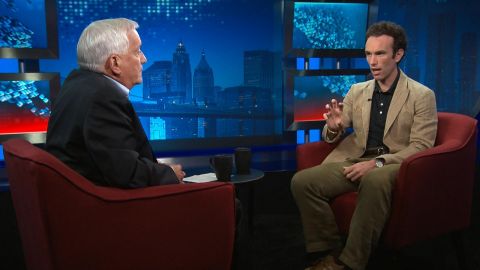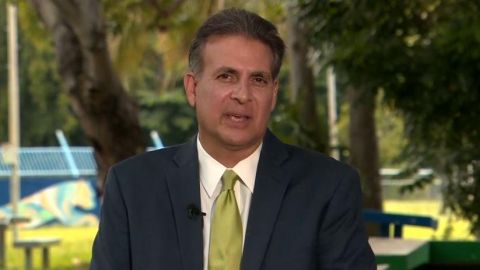Read Transcript EXPAND
CHRISTIANE AMANPOUR: Since you’re right here sitting in front of me, Sarah, I want to ask you, you’ve come over for the “New York Times” as writer-at- large to pick up where you left off at the Brexit referendum, to chart Boris Johnson’s political rise.
SARAH LYALL, JOURNALIST, THE NEW YORK TIMES: Three years ago, I was here, and I wrote what I thought would be Boris Johnson’s political obituary. You know, he came very close to being prime minister last time. Finally, it felt like his past had caught up to him and he didn’t make it and he dropped out of the race. And I thought this would never happen. I’m actually quite shocked to see the turn of events.
AMANPOUR: And why are you shocked? Before we —
LYALL: Well, it felt like he had gotten as far as he was going to go. He was one of the architects of the Brexit leave campaign in the first place. He was positioning to be the new prime minister. He was stabbed in the back by his own political ally at the last minute who said, “I had supported Boris but I don’t think he has it in him to be a good prime minister.” He was (INAUDIBLE). Boris quit from the race and it felt like that was it for him, and he’s been plotting ever since. And who knew that this would happen.
AMANPOUR: Before I turn to Margaret, I just want to follow up on this stab in the back, because one might say, and people have, that he also stabbed Theresa May in the back and that’s where he is now. And she, in fact, said in a farewell address to Chatham House that she thought that, you know, offering to resign might do the trick on Brexit, but it didn’t. We’re just going to play this little bit of sound from her.
(BEGIN VIDEO CLIP)
THERESA MAY, FORMER BRITISH PRIME MINISTER: I was told that if I said I would stand down, then the votes would come behind the deal. I said I would stand down and I’ve done — I’m doing so. The votes didn’t come. That’s politics.
(END VIDEO CLIP)
AMANPOUR: I mean, that pretty much sums up the stage of the Conservative Party over the last, you know, 10 years or so.
LYALL: Yes. Remember, he also stabbed David Cameron in the back three years ago because he had promised to support Cameron’s campaign to revene in the European Union, and at the last minute he changed his mind and became the front man of the leave campaign. So, Margaret MacMillan in Toronto, what does this all mean in terms of the historic precedent, in terms of the gravitas that is required of a British prime minister, particularly at this time? And I guess also to answer that democratic question, I know his Conservative Party membership rules, but nonetheless, it is a fraction of a fraction of a fraction of the electorate that has appointed Boris Johnson at this particularly important time.
MARGARET MACMILLAN, PROFESSOR EMERITUS, OXFORD UNIVERSITY: The last thing you can say with this choice of Boris Johnson is the people have spoken. It is a tiny fraction of the English public, and it is, I think — I’m as surprised as Sarah Lyall is, that he is where he is. As opposed the parallels or the crisis during the — since the first World War in 1916 when the war was going bad for Britain and the Asquith government was tossed out and the government headed by Lord George came in. And the same thing happened in 1940 with Winston Churchill coming in after Neville Chamberlain appeared to make a mess of things.
About This Episode EXPAND
Eduardo Bhatia and Christiane Amanpour discuss the resignation of Puerto Rico’s governor. Margaret MacMillan and Sarah Lyall join the program to unpack the week’s events in the United Kingdom. Former U.S. marine Elliot Ackerman sits down with Walter Isaacson to discuss stories from the battlefield and his new memoir, “Places and Names: On War, Revolution and Returning.”
LEARN MORE


